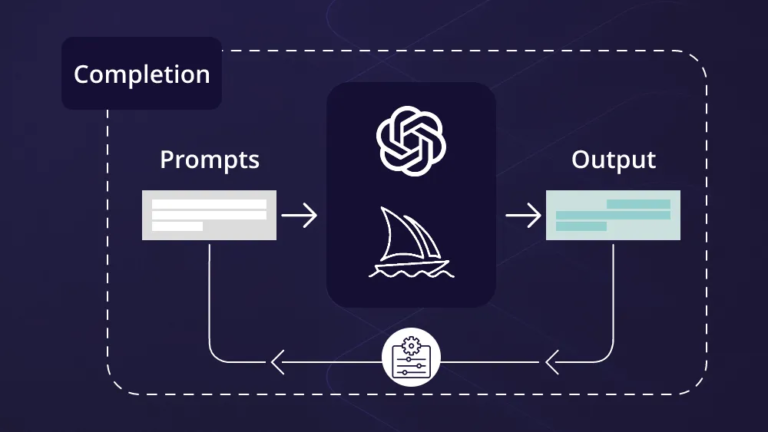The Future of AI-Driven Content Detection
Key Takeaways
- AI content detection is transforming information verification.
- Understanding its mechanics helps appreciate its impact.
- There are benefits and challenges in its implementation.
- Real-world applications highlight its transformative potential.
- The ethical use of AI in content verification is critical in the future.
Table of Contents
- Introduction to AI Content Detection
- How AI is Shaping Content Verification
- The Science Behind AI Detection
- Benefits of Using AI for Content Analysis
- Challenges Faced in AI Detection Technologies
- Case Studies: Real-World Applications
- Sustainability and Ethical Considerations
- The Road Ahead for AI and Content Verification
Introduction to AI Content Detection
Artificial Intelligence (AI) is dramatically reshaping various industries, and content detection is a vital change in the field. With the rise of digital platforms, the need for trusted content has never been more pressing. Tools such as an AI detector are now at the forefront of ensuring the digital information we access daily is accurate and reliable. This innovative technology acts like a digital sieve, handling colossal data sets to verify content quickly and precisely. This advancement is undoubtedly pivotal in our increasingly interconnected digital landscape, where the demand for authentic information escalates.
As highlighted by The Guardian, AI-driven content detection is not just about efficiency but also about reducing the human burden in digital verification processes. With vast amounts of content flooding the internet daily, AI tools provide an indispensable solution to maintaining the reliability and integrity of this information. This leap in technology offers both a promise and a challenge as it strives to balance efficiency, accuracy, and transparency in content verification.
How AI is Shaping Content Verification
AI’s role in the evolution of content verification processes is profound. The technology has grown far beyond its initial capabilities, and it can now analyze, authenticate, and curate digital content with remarkable efficiency. Whether through combating misinformation in media outlets or protecting intellectual property in academic institutions, AI is a powerful ally. According to insights from Forbes, AI algorithms excel by identifying inconsistencies and learning from vast data inputs, thus minimizing human error and enhancing the overall accuracy of content verification efforts.
This shift towards AI-driven processes is helping industries streamline operations while ensuring the integrity of information. By leveraging tools that can process and interpret vast datasets in moments, organizations are better equipped to maintain high content reliability and trustworthiness standards, which are crucial in a world that values transparency and authenticity.
The Science Behind AI Detection
At its core, AI detection leverages sophisticated algorithms that replicate human-like reasoning and decision-making abilities. After extensive training with diverse data sets, these machine learning models become adept at recognizing patterns and deviations. This scientific foundation enables AI tools to improve accuracy and efficacy continuously. Over time, these systems refine their abilities, enhancing their capacity to verify content authenticity more precisely.
Moreover, the adaptive nature of machine learning means that AI detection tools are not static; they evolve by learning from new data inputs. This process ensures these tools remain at the cutting edge of technology, constantly improving their detection capabilities to keep pace with the ever-evolving digital content landscape. Their design allows for scalability and flexibility, key attributes needed as data sets become more complex.
Benefits of Using AI for Content Analysis
Implementing AI in content analysis brings several transformative benefits to businesses and organizations. Chief among these is the substantial increase in operational efficiency, enabling vast data volumes to be processed quickly and accurately. This capability dramatically reduces the time and resources needed for manual content verification, allowing human professionals to focus on strategic initiatives that require creative thinking and decision-making.
Additionally, leveraging AI for content analysis significantly boosts accuracy, minimizing the margin for human error. By automating the detection process, companies can ensure a consistent, unbiased approach to content verification. This automation leads to improved outcomes, helping organizations build credibility and trust in the information they provide or disseminate, a crucial advantage in today’s competitive digital environment.
Challenges Faced in AI Detection Technologies
Despite the remarkable progress, AI detection technologies face several noteworthy challenges. One significant issue is the potential for algorithmic bias. AI systems based on training data may inadvertently perpetuate these biases in their outputs. This challenge necessitates careful consideration in the design and implementation of AI models to ensure that they promote fairness and transparency.
Moreover, the costs associated with implementing and maintaining state-of-the-art AI systems can be prohibitive for some entities. The constant need for updates to keep the technology efficient and relevant is another challenge that industries must navigate. Successfully overcoming these obstacles is crucial for enhancing user trust and maximizing the potential benefits of AI-driven content verification tools.
Sustainability and Ethical Considerations
As AI technologies become more entrenched in content verification processes, attention must be given to their ethical and environmental implications. Ensuring that AI systems are used responsibly requires a commitment to transparency and fairness, which is imperative for fostering public trust. Addressing issues of algorithmic bias is also crucial, as it plays a significant role in maintaining ethical standards in AI outputs.
Sustainability is another important consideration, as the growing demand for AI infrastructure has environmental repercussions. Organizations must adopt sustainable practices to mitigate these impacts, ensuring that AI development is aligned with broader efforts to promote environmental stewardship and reduce carbon footprints.
The Road Ahead for AI and Content Verification
The future of AI in content verification is promising, heralding further advancements in this dynamic field. AI tools will become more sophisticated as technology evolves, offering even greater accuracy and efficiency. These improvements will expand AI’s role in upholding content authenticity, heralding a digital landscape where trust, transparency, and reliability stand at the forefront.
As organizations continue to invest in these technologies, the ongoing refinement of AI systems will ensure that content verification processes remain robust and effective. This trajectory promises to redefine the standards of content integrity and trust, setting a precedent for future advancements in the digital content arena.






